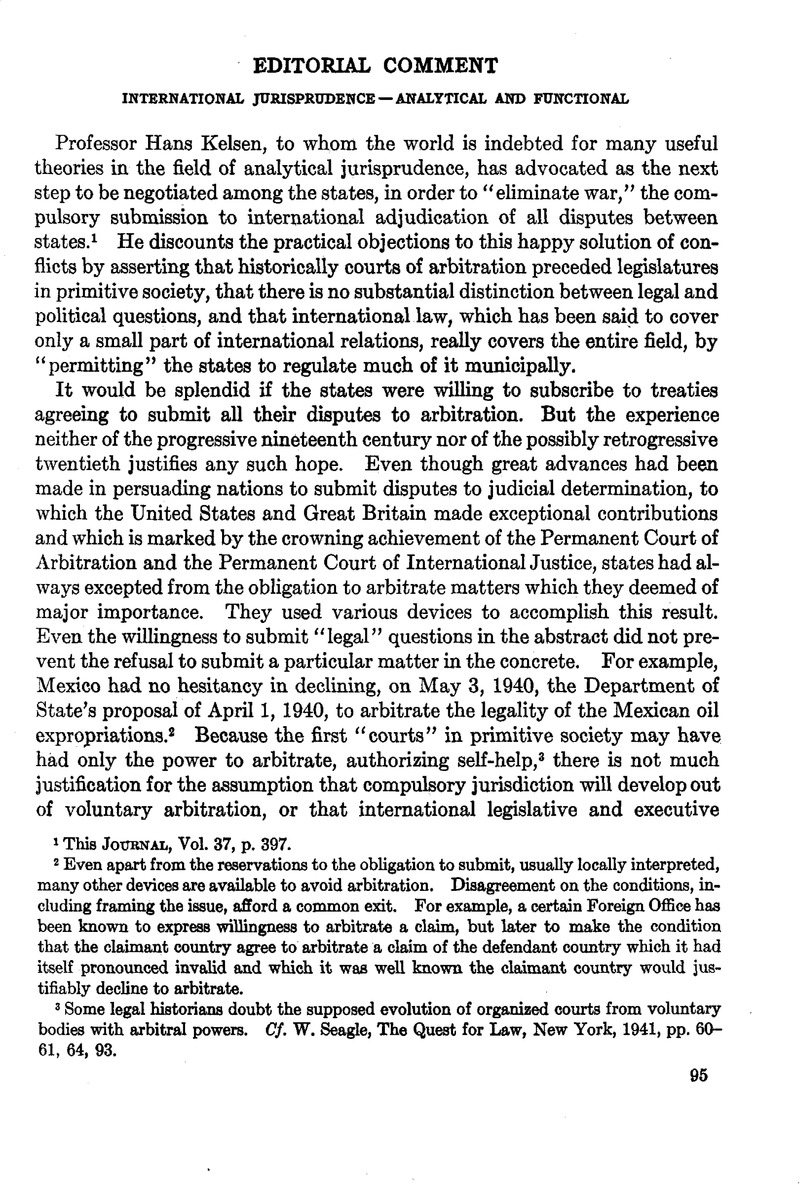No CrossRef data available.
Published online by Cambridge University Press: 12 April 2017

1 This Journal, Vol. 37, p. 397.
2 Even apart from the reservations to the obligation to submit, usually locally interpreted, many other devices are available to avoid arbitration. Disagreement on the conditions, including framing the issue, afford a common exit. For example, a certain Foreign Office has been known to express willingness to arbitrate a claim, but later to make the condition that the claimant country agree to arbitrate a claim of the defendant country which it had itself pronounced invalid and which it was well known the claimant country would justifiably decline to arbitrate.
3 Some legal historians doubt the supposed evolution of organized courts from voluntary bodies with arbitral powers. Cf. Seagle, W., The Quest for Law, New York, 1941, pp. 60–61, 64, 93Google Scholar.
4 Cf. Lauterpacht, H., The Function of Law in the International Community, Oxford, 1933, p. 153 Google Scholar; Borchard, E., The Distinction Between Legal and Political Questions, Proceedings of the American Society of International Law, 1924, pp. 50 Google Scholar et seq.
5 Op. cit., 402.
6 Borchard, The Relation between International Law and Municipal Law, 27 Va. L. Rev. 137 (Dec. 1940).